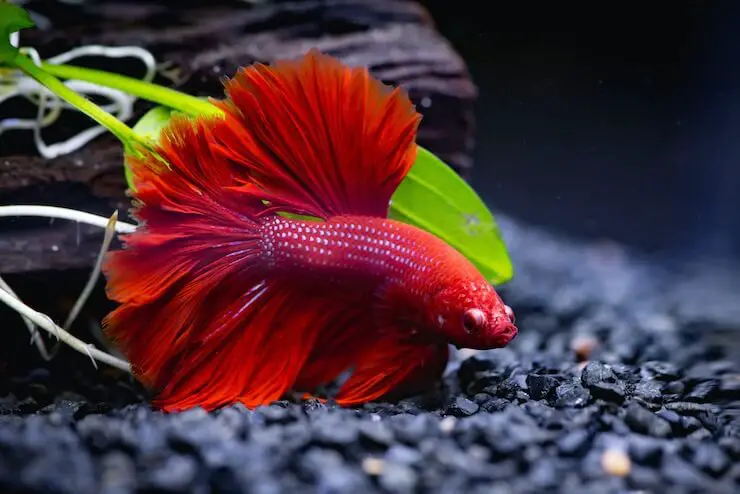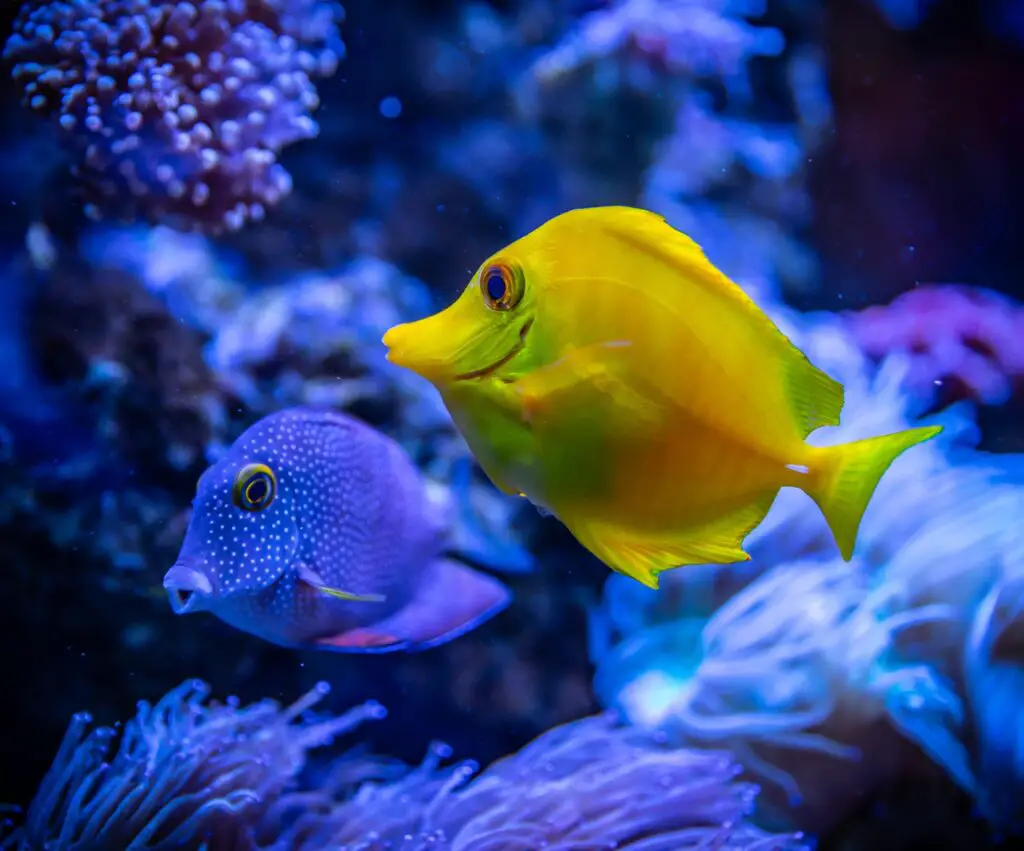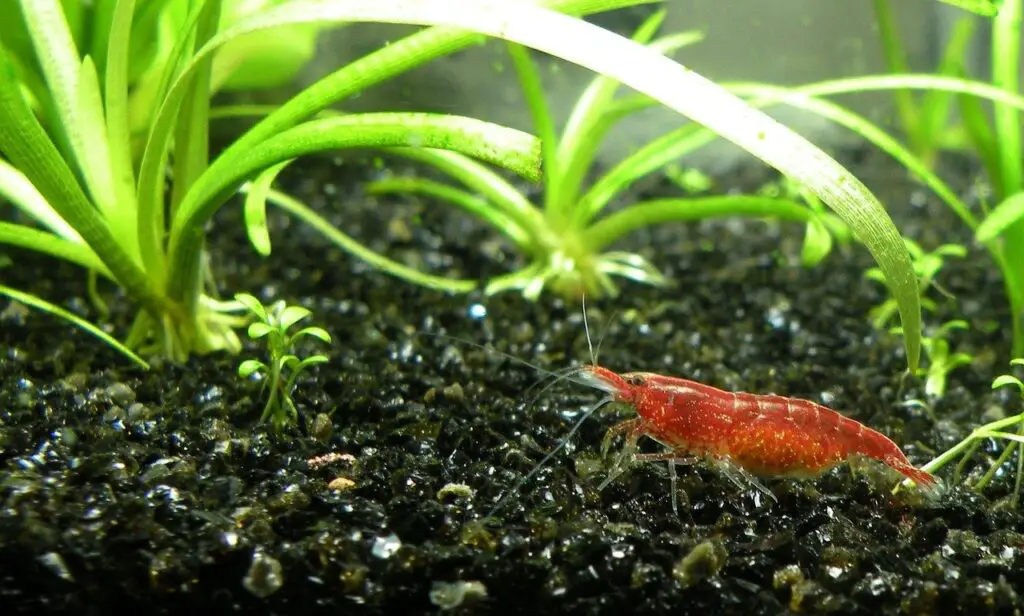Betta fish are known for their active and graceful swimming, but sometimes, they can appear lethargic or inactive, spending most of their time at the bottom of the tank. One of the reasons for this behavior is lack of sleep or rest during the day.
Betta fish are diurnal, which means they are active during the day and rest at night.
However, in a brightly lit or noisy environment, betta fish may be unable to rest or sleep properly, affecting their behavior and activity levels.
To ensure that your betta fish gets enough sleep and rest, providing a suitable environment that mimics their natural habitat is important.
This includes providing adequate hiding spots, live plants, and aquarium decorations that offer shelter and security.
Additionally, avoid using bright or flashing lights at night, as it can disrupt their sleep cycle and affect their behavior.
Suppose you notice that your betta fish consistently stays at the bottom of the tank and appears lethargic or inactive.
In that case, consider adjusting their environment.
Providing a comfortable and natural environment can help your betta fish stay healthy, active, and happy.
Possible Reasons for Betta Fish Staying at the Bottom of the Tank
Water Temperature
Betta fish are tropical fish that require warm water to thrive. If the water temperature in the tank is too cold, it can cause the fish to become sluggish and stay at the bottom of the tank.
The ideal water temperature for betta fish is between 76-82°F (24-28°C).
To maintain a stable water temperature, use a heater in the tank that is suitable for the size of your tank. It’s important to regularly check the temperature to ensure it remains within the recommended range.
Avoid sudden temperature changes, which can also stress the fish and cause them to become lethargic.
Water Quality
Poor water quality is another common reason betta fish stay at the bottom of the tank. Betta fish require clean water to thrive, and if the water is dirty or contaminated, it can lead to various health problems and make the fish sluggish.
To maintain good water quality, it’s essential to perform regular water changes and use a water conditioner to remove harmful chemicals and chlorine from tap water.
Also, avoid overfeeding your fish, as uneaten food can quickly contaminate the water and cause problems.
Lack of Oxygen
Betta fish need oxygen to breathe, and if there is not enough oxygen in the tank, it can cause the fish to become lethargic and stay at the bottom of the tank.
This can happen if the tank is overcrowded or there must be more live plants or aeration devices.
To ensure that your betta fish gets enough oxygen, provide enough live plants in the tank and an air pump or filtration system that aerates the water. Also, avoid overcrowding the tank with too many fish or decorations, as this can reduce the amount of oxygen available in the water.
Overcrowding
As mentioned earlier, overcrowding the tank can reduce the amount of oxygen in the water and cause betta fish to become lethargic.
Additionally, it can lead to aggressive behavior among fish and cause stress and other health problems.
To prevent overcrowding, choose an appropriate tank size for your betta fish and avoid adding too many fish or decorations.
In addition, researching and understanding your betta fish’s specific needs is vital to ensure they have enough space to swim and thrive.
Illness or Injury
Finally, if your betta fish stays at the bottom of the tank, it could be due to an illness or injury.
Various health problems can cause fish to become lethargic and lose their appetite, including bacterial infections, fungal infections, and parasites.
If you suspect your betta fish is ill or injured, isolating them from other fish is essential, and seeking veterinary care is important.
Your veterinarian can diagnose and treat the underlying health problem and provide appropriate medication to help your fish recover.
Things to Avoid When Taking Care of Betta Fish
Overfeeding
Overfeeding is a common mistake that many betta fish owners make. Overfeeding your fish can lead to obesity, constipation, and other health problems.
Betta fish have small stomachs and should only be fed an amount they can consume in 2-3 minutes, twice daily.
It’s crucial to avoid leaving any uneaten food in the tank, as it can quickly contaminate the water and cause various health issues for your fish.
To avoid overfeeding, use a suitable type of food and feed your fish in small amounts.
Betta fish are carnivorous and prefer live or frozen food, such as bloodworms, brine shrimp, or daphnia.
However, they can also be fed high-quality dry food or pellets specifically designed for betta fish.
Using Harsh Chemicals
Harsh chemicals, such as household cleaners, bleach, or ammonia, can harm betta fish and quickly contaminate the water.
Therefore, avoiding using harsh chemicals near the tank or in the water is important.
To clean the tank, use a suitable aquarium-safe cleaner or clean it with warm water and a scrub brush.
Also, please avoid using any decorations or plants treated with chemicals or pesticides, as they can also harm your fish.
Changing Water Too Frequently
Although it’s crucial to maintain good water quality, changing the water too frequently can be stressful for betta fish and disrupt the balance of the tank’s ecosystem.
Avoid changing the water too often or performing significant water changes, as they can cause stress and various health issues for your fish.
Instead, perform regular water changes of 25-30% every week or two, depending on the tank size, the number of fish, and the type of filter used.
Additionally, using a water conditioner to remove any harmful chemicals or chlorine from tap water is important.
Placing Betta Fish in a Tank with Aggressive Fish
Betta fish are known for their aggressive behavior, especially towards other male bettas or fish with similar colors or fin shapes.
Avoid placing your betta fish in a tank with aggressive or territorial fish, as it can cause stress, injuries, or even death for your fish.
If you want to keep other fish in the tank with your betta fish, choose peaceful and non-aggressive species with similar water requirements that can coexist peacefully with your betta.
Research the specific needs and behavior of the fish before adding them to the tank.
Tips for Setting up a Suitable Betta Fish Tank
Use Aquarium-Safe Substrate and Decorations
Using suitable substrate and decorations is important for betta fish’s health and safety.
Please avoid using any decorations or plants that have sharp edges or rough surfaces, as they can cause injuries to your fish.
Also, choose aquarium-safe materials that won’t affect the water chemistry or quality, such as natural rocks, driftwood, or ceramic decor.
Add Live Plants
Live plants can provide numerous benefits to betta fish, including oxygenation, water filtration, and a natural environment.
Additionally, live plants can reduce fish stress and aggression, providing hiding places and resting spots.
Suitable plants that can thrive in the tank’s water conditions and lighting, such as java ferns, anubias, or moss balls.
Also, add only a few plants or over-crowding the tank, as it can reduce the swimming space for your fish.
Ensure Proper Lighting
Proper lighting is essential for live plants’ growth and health and can also affect the betta fish’s activity levels and behavior.
The ideal lighting for betta fish is 8-10 hours per day, with a suitable spectrum and intensity miming natural sunlight.
To provide proper lighting, choose a suitable type of light fixture and bulb that suits your tank size and plant species.
It’s important to avoid using too bright or dim lighting, as it can affect the water temperature, algae growth, and your fish’s health.
FAQ:
Can betta fish live with other fish in the same tank?
- Betta fish can be territorial and aggressive towards other fish, especially other male bettas or fish with similar colors or fin shapes. If you want to keep other fish in the tank with your betta fish, choose peaceful and non-aggressive species with similar water requirements that can coexist peacefully with your betta.
How often should I clean my betta fish tank, and what is the best way to do it?
- To maintain good water quality, perform regular water changes of 25-30% every week or two, depending on the tank size, the number of fish, and the type of filter used. Use a water conditioner to remove harmful chemicals or chlorine from tap water. Clean the tank with warm water and a scrub brush, and avoid using any harsh chemicals that can harm your fish.



